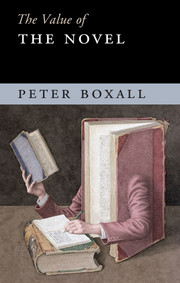Conclusion: The Thing Which Is Not
Published online by Cambridge University Press: 05 September 2015
Summary
Do thou, too, live in this world without being of it.
Herman Melville, Moby Dick.In a 2014 article entitled ‘The Novel is Dead (this time it's for real)’, Will Self offers a typically witty and trenchant account of the future of the novel – or the perceived lack thereof. The novel is a product of a certain period of modernity, Self argues, and a certain conception of the relationship between the private individual and the public sphere. The experiments that we associate with modernism – ‘the telescoping of fictional characters into their streams of consciousness; the abandonment of the omniscient narrator; the inability to suspend disbelief in the artificialities of plot’ – are symptoms, for Self, of the slow malfunctioning of the apparatuses of the novel. Joyce's Finnegans Wake, he suggests, marks the moment at which the ‘form should have been laid to rest’. There have been ‘many fine novels written’ in the period after Joyce's late experiments in narrative, but, Self writes, these are ‘zombie novels, instances of an undead art form that yet wouldn't lie down’.
Self offers two reasons for this extended death of the novel in the aftermath of Joycean modernism, both of which are connected to the emergence of electronic communication. The first has to do with the experience of a certain cultural exhaustion, a sense that, with the access to the entire archive of human expression provided by the internet, there comes a failure of our capacity to imagine anything original, to create anything different or surprising. ‘The instant availability of almost everything that had ever been done’, Self writes, has the effect of ‘stifling creativity’ and locking us into a ‘permanent now’, a condition in which everything is available, so nothing either ages or strikes us as new. The second reason that Self gives follows on from the first: if the electronic media that developed over the twentieth century allow us access to the past, to the archive, they also offer us unbroken access to each other. The experience of hyperconnectivity that comes with the emergence of the internet leads to the loss of any kind of privacy, any sense that we can withdraw from the public sphere, into some inner space of contemplation or thought.
- Type
- Chapter
- Information
- The Value of the Novel , pp. 138 - 144Publisher: Cambridge University PressPrint publication year: 2015

